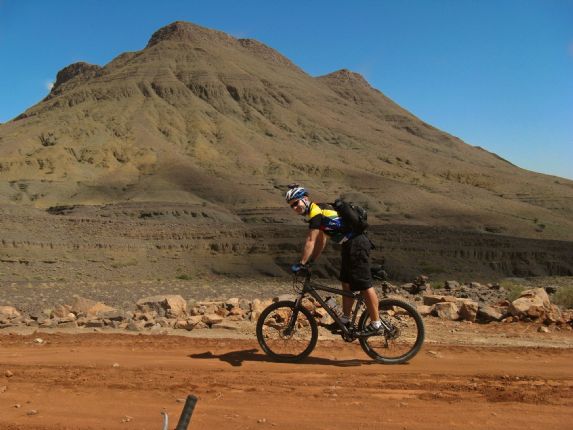Public holidays in Morocco

The major 'holiday' to keep an eye on is Ramadan. It is a month of fasting during daylight hours. Consequently, many restaurants do not open during daylight hours. In fact, they only tend to open an hour after sundown so as to allow their staff and family to eat first. Alcohol is very difficult to come by during Ramadan. It is wise to not offend the local's sensibilities by eating and drinking in public during daylight hours.
Islamic Holidays
Islamic religious holidays are calculated on the lunar calendar, so their dates rotate throughout the seasons (as does Ramadan's), losing approximately eleven days a year against the Western (Gregorian) calendar. Exact dates in the lunar calendar are almost impossible to predict - they are actually set by the Islamic authorities in Fes depending on when the new moon is sighted (what do they do if it is a cloudy night ?), it is then announced by the king on TV, radio and in the newspapers the preceding day. For instance Eid-Al-Fitr could be 1st, 2nd or 3rd October 2008 ?
Below I have tried to indicate as near as possible the future, approximate dates for the Islamic Holidays, unless you specifically want to visit during one of these periods, they're possibly best avoided, as all banks, post offices and most shops close on the main holidays, as do many restaurants, public transport will sometimes also be affected, and basically the site of Fadesa grinds to a halt !
- 22 August 2009 / 11 August 2010 / 1 August 2011 - Ramadan (start)
Ramadan is the Muslim month of fasting, and Moroccans are forbidden by law from "public disrespect" of the fast during daylight hours and a few people are jailed for this each year.
- 20 September 2009 / 10 September 2010 / 30 August 2011 - Eid-Al-Fitr
The end of Ramadan when Muslims celebrate the end of fasting and thank Allah for His help with their month-long act of self-control. Very family orientated holiday.
- 28 November 2009 / 17 November 2010 / 6 November 2011 - Hajj (start) / Eid-Al-Adha
The annual pilgrimage to Mecca that Muslims should complete at least once in their lifetime. It celebrates the willingness of Ibrahim to obey Allah and sacrifice his son Isaac and culminates in the ritual slaughter of a lamb.
- 18 December 2009 / 7 December 2010 / 26 November 2011 - Al-Hijira / Moharem
Islamic New Year's Day. Marks the migration of the Prophet Mohammad and his followers from Mecca to Medina.
- 7 January & 27 December 2009 / 16 December 2010 - Ashura
Islamic holy day observed on the 10th of the Islamic month of Muharram. Shi'ite. Muslims regard it as a major festival marking the martydom of the Prophet's grandson, Hussein.
- Monday 9 March 2009 / 26 February 2010 / 15 February 2011 - Moulid an Nabi (Birthday of the Prophet Mohammed)
Shia Muslims celebrate this 5 days later. Some Muslims do not approve of celebrating the birthday, and regard doing so as a religious innovation.

General Public Holidays (Fetes nationales)
In addition to the Islamic holidays there are the secular fetes nationales, all also celebrated to some extent, and these are tied to the Western calendar dates:
January 1st - New Year's Day.
January 11th - Anniversary of Istiqlal Manifesto (demand of Independence).
May 1st - Labour Day.
July 30th - Feast of the Throne (largest secular holiday, usually over two to three days) - commemorates the accession to the throne of King Mohammed VI.
August 14th - Allegiance of Oued Eddahab - celebrates the return of the region to Moroccan rule, it was once claimed by Mauritania.
August 20th - King & People's Revolution.
August 21st - King's Birthday & Youth Day.
November 6th - Anniversary of the Marche Verte - Green March of the Saharawi People 'reclaiming' the Western Sahara in November 1975.
November 18th - Independence Day
We look forward to assisting you.
The SaidiaHolidayRentals crew.
morocco culture,moroccan food,morocco food,moroccan cuisine,morocco beaches,moroccan meal,beaches in morocco,moroccan culture,hercules cave,hercules cave morocco